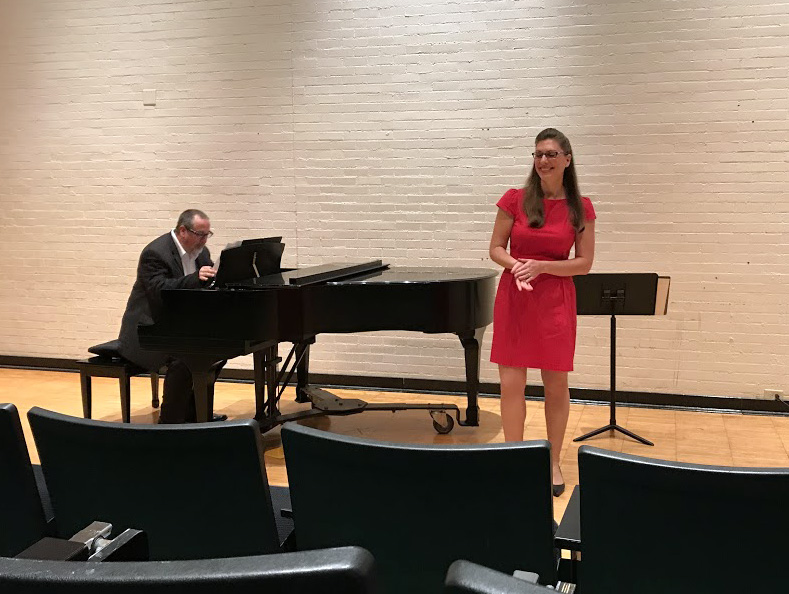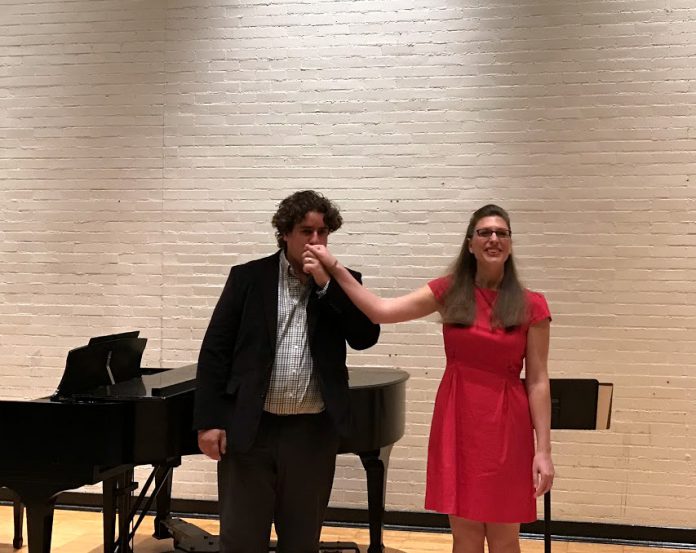As a junior, I am no stranger to the hustle and activity of Alumni Weekend. While many new students could have been slightly overwhelmed by the sea of people that flooded our modestly sized liberal arts campus, a sort of epiphany begins to set in during later semesters. Myself and many others realize how truly remarkable it is to see the history of Muhlenberg in the flesh, walking beside you on Academic Row. Certainly most think to the future at least once, imagining what it must feel like to join the ranks of Muhlenberg Alumni. Simply put, Alumni Weekend is as much of an opportunity for students of yesteryear to look back on the old days as it is a way for current students to glimpse into the future.
This merging of Muhlenberg’s future and past opens up the opportunity for the semester’s most unique events and programs, with the Alumni Recital being no exception. After covering several recitals performed by then-current Muhlenberg students throughout the past two years, I was no stranger to the sheer level of talent my fellow student body could display. As I sat down for this weekend’s recital, somehow it didn’t dawn on me that an alumni recital would be performed by alumni. That’s a pretty odd thing not to pick up on, I guess. A quick glance at the recital’s song sheet would inform me of my little gaff.

As Selena Moretz Lavonier ’02 and Vincent Trovato, music instructor and staff accompanist, entered the theater, the absence of introduction was replaced by the immediate start of the performance, kicking things off with Ralph Vaughan Williams’s “Silent Noon.” Throughout the piece, thoughts were racing around in my head. While the performance was indeed impressive, it dawned on me that there was something more going on here. Yes, Muhlenberg talent was clearly present in Moretz Lavonier’s performance, but there was definitely more than meets the eye to what was onstage. I couldn’t exactly put my finger on it yet, but as the recital continued with guest performer Stephen Lavonier’s performance of “Rivolgete a lei sguardo,” I kept a little brainstorm session in my mind so that I could later solve the mystery of whatever was making this recital so distinct.
During the latter half of the recital, the pieces performed seemed to shift away from the English tongue and towards pieces in romantic languages. Despite the change in tongues, the expertise and vocal finesse of both singers remained impeccable as ever. Following the final performance by Moretz Lavonier, the recital hall, once radiating with the vocals of the performers, boomed with echoing applause and cheers from the audience. Among the attendees of the recital were a number of current students here at Muhlenberg that I knew or at least have seen around campus. The applause from them was perhaps the loudest.
It was then that I realized what was so special about this recital. As a Muhlenberg alum herself, Moretz Lavonier’s performance was not only a way of saying thanks for her education here, but also as a means to exhibit how far she has come since then; now, she is no longer a student but a plain professional. This alumni effect doesn’t just end with Moretz Lavonier, however, as the current students attending the recital could have very well seen themselves in her shoes some years down the line. It is for these reasons why I feel that Alumni Week is so much more than a reunion weekend. While those who have studied here long ago come to reminisce and celebrate the nostalgia of their college experiences, us current students can look at them and think into the future, knowing that one day, we will be in their shoes, showing what Muhlenberg College has taught us to those next in line.






















